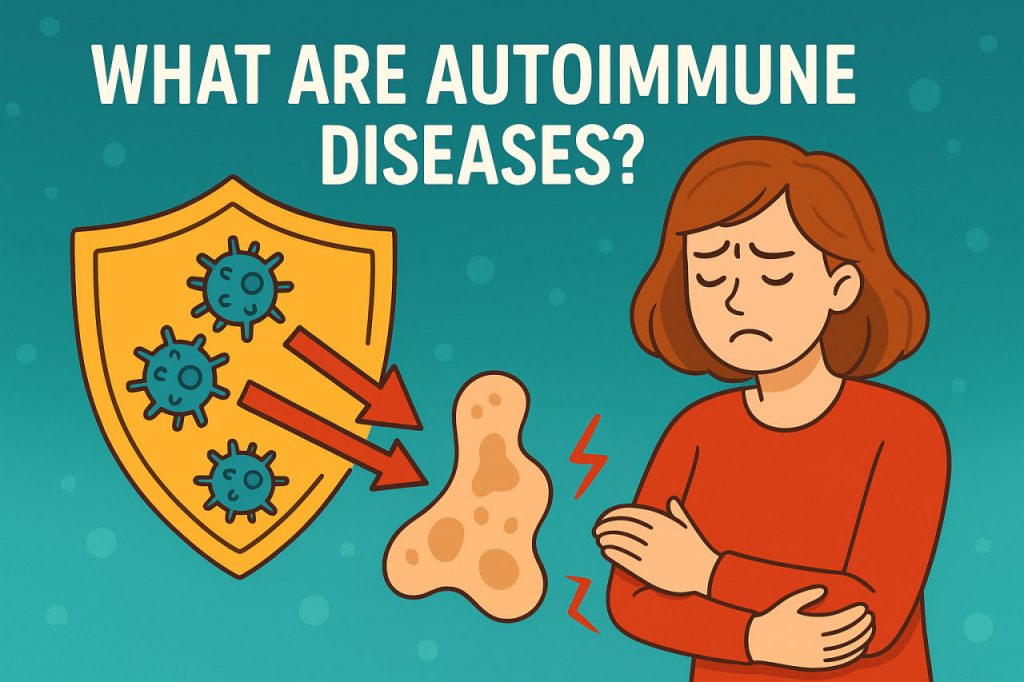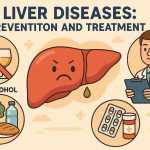Autoimmune diseases are conditions in which the body’s immune system mistakenly attacks its own healthy tissues, thinking they are harmful invaders. These disorders can affect nearly any part of the body, from the joints and skin to organs like the thyroid or pancreas. Over 80 different types of autoimmune diseases have been identified, and they often share overlapping symptoms that make diagnosis challenging.
How the Immune System Works
Normally, the immune system protects the body by detecting and destroying bacteria, viruses, and other pathogens. It uses white blood cells, antibodies, and signaling molecules to target these invaders. In autoimmune diseases, however, the system loses the ability to distinguish between “self” and “non-self” and begins to attack the body’s own cells.
Common Autoimmune Conditions
Some of the most well-known autoimmune diseases include:
- Type 1 diabetes – the immune system destroys insulin-producing cells in the pancreas
- Rheumatoid arthritis – the immune system targets the joints, causing inflammation and pain
- Lupus (SLE) – affects skin, joints, kidneys, and other tissues
- Multiple sclerosis (MS) – attacks the protective coating of nerves in the brain and spinal cord
- Hashimoto’s thyroiditis – damages the thyroid gland, leading to underactive thyroid
- Psoriasis – accelerates skin cell growth, causing scaly patches
What Causes Autoimmune Diseases?
The exact cause is still unknown, but a combination of genetics, environmental factors, and hormonal influences is believed to play a role. Triggers may include infections, exposure to certain chemicals, stress, and diet. Some autoimmune diseases are more common in women, especially during childbearing years.
Symptoms and Diagnosis
Symptoms vary widely depending on the specific condition, but common signs include:
- Fatigue
- Chronic pain
- Skin rashes
- Digestive issues
- Swelling or inflammation
- Fever
Diagnosing autoimmune diseases often requires blood tests, imaging studies, and specialist evaluation. Because symptoms can be vague or mimic other illnesses, diagnosis may take time.
Treatment and Management
Autoimmune diseases cannot usually be cured, but they can often be managed. Treatments aim to:
- Reduce inflammation
- Suppress overactive immune responses
- Relieve symptoms
- Prevent organ damage
Management often involves lifestyle changes, including a balanced anti-inflammatory diet, regular physical activity, and stress reduction techniques. Self-medication is not recommended; treatment must be guided by a medical professional.
Glossary
- Autoimmune disease – a condition where the immune system attacks the body’s own tissues
- Immune system – the body’s defense system against infection
- White blood cells – immune cells that identify and destroy pathogens
- Inflammation – the body’s response to injury or infection, often causing redness, swelling, and pain
- Antibodies – proteins that help identify and neutralize invaders like viruses
- Chronic – persisting for a long time or constantly recurring
- Anti-inflammatory diet – a diet focused on reducing inflammation in the body


